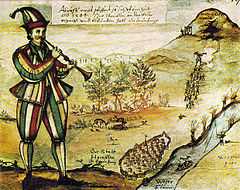Rat-catcher



Rat-catching is the occupation of catching rats as a form of pest control. In developed countries the role may be merged with, or the title inflated to, pest control operative or pest technician.
Keeping the rat population under control was practiced in Europe to prevent the spread of diseases to man, most notoriously the Black Plague and to prevent damage to food supplies.
Anecdotal reports suggest that some rat-catchers in Europe would raise rats instead of catching them in order to increase their eventual payment from the town or city they were employed by. This, and the practice of rat-fights, could have led to rat-breeding and the adoption of the rat as a pet - the fancy rat.
A famous rat-catcher from Victorian England was Jack Black, who is known through Henry Mayhew's interview for London Labour and the London Poor.
Techniques and risks
Rat-catchers would capture rats by hand, often with specially-bred vermin terriers, or with traps. Rats are rarely seen in the open, preferring to hide in holes, haystacks and dark locations. Payment would be high for catching and selling rats to breeders. A rat-catcher's risk of being bitten is high, as is the risk of acquiring a disease from a rat bite.
Modern methods of rat control include traps and poisoned bait, plus more holistic approaches such as introducing predators, reducing litter and the clearing of current or potential nest sites.
Rat catchers in fiction
A famous fictional rat-catcher was The Pied Piper of Hamelin. Ratcatchers also appear in George Eliot's The Mill on the Floss and make a major appearance in Dario Argento's The Phantom of the Opera.
Another, more recent appearance of a rat-catcher in fiction is the children's novel The Twinkie Squad by Gordon Korman. As a result of a student prank which leaves the entire school smelling like dead fish, the principal hires several "professionals" to find and remove the cause of the stench, including a sewer gas expert, an x-ray technician, and a man calling himself the "District of Columbia Ratcatcher". All three "experts" fail to find anything, with the rat-catcher concluding that there is a dead animal in the walls which can only be found and removed by means of demolition.
However, the story has a modern setting, not a Victorian one, and therefore the rat-catcher in the story is more of a general pest-control man, not strictly a specialist in rats alone.
In the DC Universe one of Batman's enemies is the Rat Catcher, formerly Otis Flannegan, who was employed as a real rat catcher for Gotham City. He occasionally orchestrates rat plagues using his uncanny ability to control rats.[1]
Ratcatcher is a 1999 film written and directed by Lynne Ramsay. It is her debut feature film.
British author Roald Dahl wrote a short story with the title "The Ratcatcher."
See also
References
- ↑ Batman: Arkham Asylum character bios.
External links
- Full Revelations of a Professional Rat-catcher by Ike Matthews' at Project Gutenberg - an 1898 account of the tricks of the trade, by a British rat-catcher